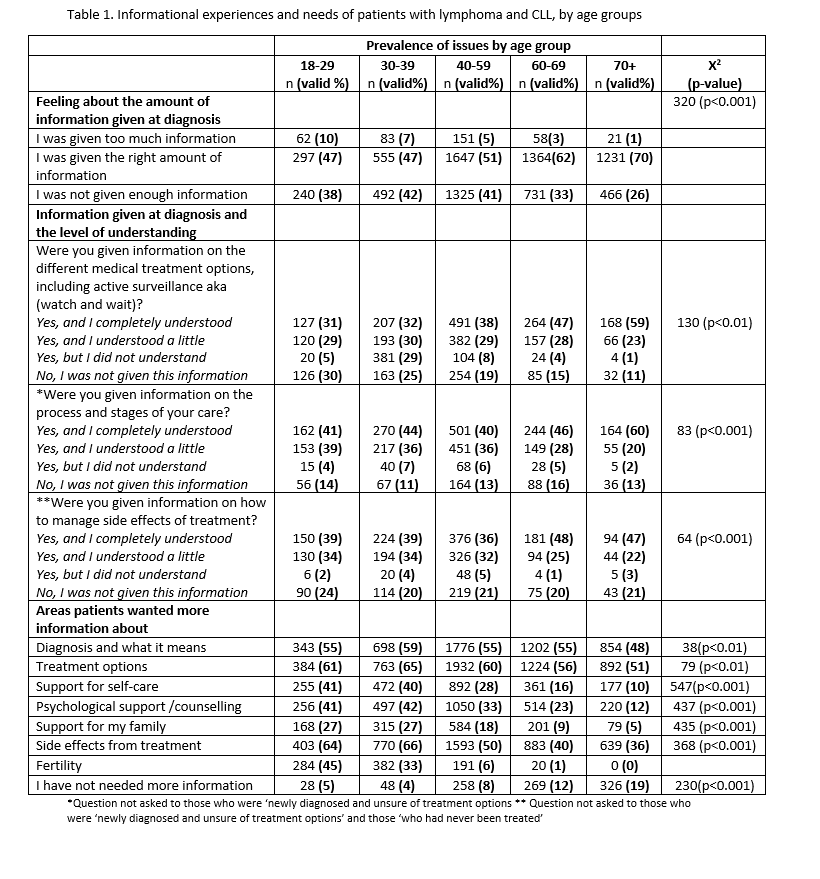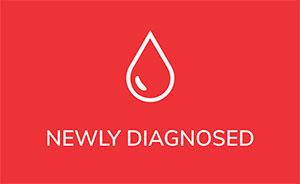INTRODUCTION:
Obtaining appropriate information and receiving answers to your questions in ways you can understand is critical. Doing so will give patients and caregivers the best outcomes and experience for your chronic lymphocytic leukemia/small lymphocytic leukemia (CLL / SLL).
In this study presented at the American Society of Hematology Annual Meeting and Exhibition (ASH 2021), the authors compared the experience in 5 different age groups on the amount of information provided, how well the information was understood, and topics on which patients and caregivers needed more information.
TAKEAWAYS:
- Respondents in this study included 11,878 patients and caregivers from around the world. Of these, 9,078 provided their age.
- These were divided into 5 groups:
- 18-29 (n=638),
- 30-39 (n=1,196),
- 40-59 (n= 3,261),
- 60-69 (n=2,216) and
- 70+ (n=1,767).
- The oldest age group reported the highest likelihood of receiving the right amount of information (70%), while the younger three age groups reported not receiving enough (38%, 42%. and 41%, respectively).
- The older two age groups reported the highest prevalence of receiving the correct type of information and understanding it.
- Regardless of age, the top three areas where more information was needed included treatment options, side effects, and what the diagnosis means for them.
- The two older age groups were more likely to receive the correct type and understand the information they received in these areas.
- The highest need for information on self-care, psychological support/counseling, and fertility was in the two youngest age groups, while these needs were lowest in the two older age groups.
- Few reported receiving too much information, and of these, the younger three groups were most prevalent (10%, 7%, and 5%, respectively).
- Demographic categories varied significantly in lymphoma subtype, sex, area of residence, education level, employment, and household status. The effect of the demographics will be addressed in future studies.
CONCLUSIONS:
Receiving and understanding the amounts and types of information about the diagnosis, treatment options, side-effects, self-care, psychologic aspects of care, and fertility in the younger age groups is critical for the best outcomes and experiences with your disease. Please ask your doctor to explain this information to you in ways you need care and can understand.
CLOSING:
Watch the interview between Dr. Koffman and Lorna Warwick from the Lymphoma Coalition:
Please enjoy the presentation at this link: Age-Related Differences in the Informational Experiences and Needs of Patients with Lymphoma: Results from the 2020 Lymphoma Coalition Global Patient Survey
SMART PATIENTS GET SMART CARE™. Be sure to ask your doctor about all your questions and for explanations that you can understand, particularly those most pertinent to your situation and needs. The more you know, the better your outcome and experiences will be.
Michael Green MD and CLL patient




